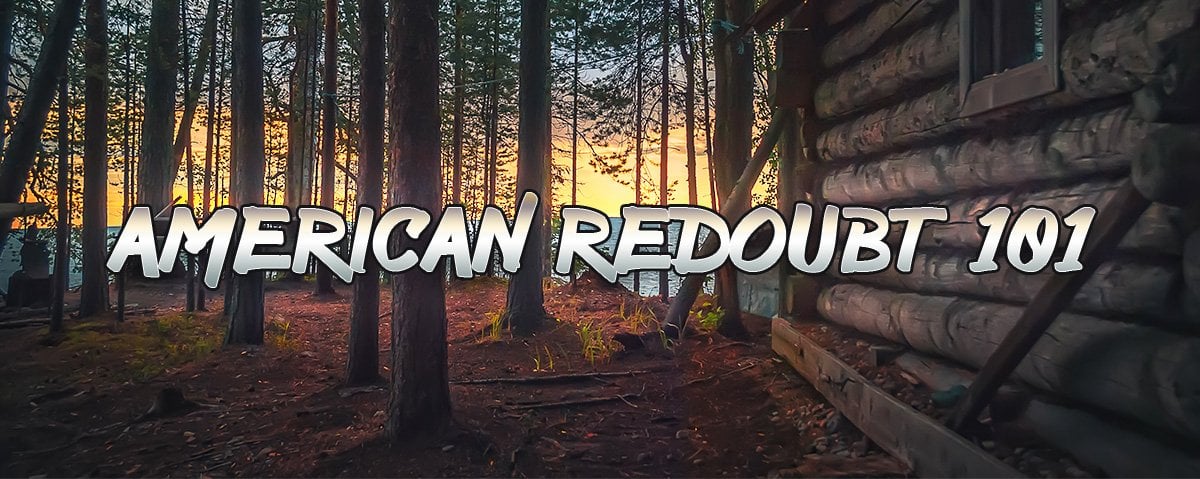
James Wesley, Rawles is the senior editor of SurvivalBlog.com and best-selling author, including the Patriots series of novels.
In much of his work, Rawles explores the concept of an "American Redoubt."
Today, we'll discuss the basics of a "redoubt," its merits and what it means for your preparedness planning. This is by no means meant to be exhaustive, but a conversation-starter.

What is a “redoubt?”
The term redoubt has its roots in military history.
It's a type of fortification or fort.
The word has a history that stems back at least to medieval times, from the Latin reductus, "a place of refuge, retreat."
These types of fortifications would typically be fully-enclosed, shielding it from attack on all sides.
Redoubts as fortifications were used in the Revolutionary War. Our defenses at West Point, New York included several redoubts, as well chain booms like the "Great Chain" that attempted to keep British forces from traveling by our rivers.
The Rawlesian Definition
In his works, Rawles uses the term redoubt, not as an actual fortification, but a region that will make a good place for retreat if American civilization collapses.
In choosing a region, Rawles required a space with few people and relatively few threats - natural and otherwise.
This led him to settle on the states of Idaho, Wyoming, and Montana, as well as eastern Oregon and Washington as a suitable place of retreat.
However, we believe that it's not realistic to think that all of us interested in preparedness can just pick up and move cross-country in a moment's notice.
One motto of Rawles' that applies here is important:
"Choose your neighbors wisely."

In short, your neighbors and the company you keep will have an effect on your chances of survival. It's always a good idea to surround yourself with positive, like-minded influences.
Yet, not all of us can choose our neighbors in a snap. But it is important for us all to do the work - get to know each other, help in times of need, be a part of a community, talk about preparedness with one another. Become morally and spiritually stronger together.
As Rawles puts it:
"I believe that it takes both faith and friends to survive perilous times."
In essence, it is possible to build your own redoubt - or retreat from any emergency - if you are able to build a strong community or team.
Yes, low population density and protection from natural disasters have distinct advantages. But nothing is more powerful than the power of faith, the human spirit, and community built upon those principles.
This goes for all the material aspects of your preparedness planning as well. They will not be useful unless you have the skills and knowledge to use them. They're also worthless without practice.
Rawles put it boldly:
Preparedness is not just about accumulating a pile of stuff. You need practical skills, and those come only with study, training, and practice. Any armchair survivalist with a credit card can buy a set of stylish camouflage fatigues and an "M4gery" carbine encrusted with umpteen accessories. Style points should not be mistaken for genuine skills and practicality.
I would like to challenge all of you to think about how you build your own "American Redoubt" using these principles. It will take work. Perhaps if we can all think this way, we might avoid the collapse of civilization altogether.
Have a great weekend, and stay vigilant out there friends!
In Liberty,
Elizabeth Anderson
MPS Preparedness Advisor
P.S. To learn more about self-reliance, follow MPS on Facebook or Twitter.


